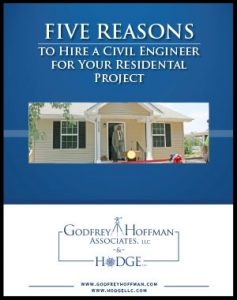Dealing with encroachment issues can be stressful for homeowners, but there are ways to handle these concerns that can provide a higher level of resolution than others. Additionally, there are legal remedies if the homeowners are not able to settle the issue themselves. Any homeowners who cannot solve encroachment issues to the satisfaction of all the parties involved should certainly seek legal advice. But fortunately, most boundary and encroachment disputes never have to come to that.
Here are some common ways to handle encroachment that can be taken care of quickly, easily, and without legal representation. The more amicable neighbors can be in encroachment cases, the easier it will be to solve the issues and move forward. Getting along with neighbors is not always possible, but it should be the goal for homeowners who live in neighborhoods. Generally, that goal is more easily met by homeowners who are willing to work with one another, talk to each other, and address concerns like boundary or encroachment issues directly and efficiently to solve any problems that are occurring.
Have a Professional Land Survey Done
A professional land survey should always be the first step toward assessing if there is any potential boundary or encroachment issue. In some cases, what one homeowner may feel is an encroachment issue may actually not be one. It is always better to figure that out before things go further. If one neighbor wants another neighbor to move a fence or other structure, that neighbor will first want to verify that the structure is encroaching on the other neighbor’s property.
A land survey conducted by a professional can help ensure that the boundaries between neighboring properties are clearly understood. Then decisions about whether there is encroachment and how to handle it can be more easily made. Encroachment issues do not have to cause a lot of tension between neighbors, provided those neighbors are willing to work together to solve the problem.
Talk Things Out and Offer Concessions
Talking things out and addressing the issue head-on can be among the best ways to solve any problem between neighbors. If a land survey has determined that there really is encroachment, or if the neighbors agree that encroachment is an issue, then it is time to look for a solution. Offering a concession, such as moving a fence line or repositioning another structure, is generally the right thing to do. In some cases, though, that can be very difficult.
For neighbors who do not want to move things or for whom that is really not feasible, another way to potentially solve the issue is to offer to pay for the usage. That can be done through the encroaching neighbor paying a yearly fee to use the land, or even buying the small strip of land on which the fence or structure encroaches. Neighbors who are willing to talk things out can generally arrive at a concession they both feel good about.
Seek Mediation or a Neutral Third Party
For neighbors who cannot agree but who also want to avoid getting attorneys and potentially even going to court, mediation or working with a third party who is neutral in the matter can help. This is generally far less costly than the fee an attorney would charge, and a professional mediator can help both neighbors focus in on the real issues that are bothering them. In a lot of cases the encroaching structure is not in the way of anything else, or the fence line is only a few inches off, so it is not always about using that particular space.
Instead, many encroachment issues are about the value of the land being used, the fact that it does not belong to the user and or the potential liability. By working with a third party and solving the issue through mediation, neighbors have a chance to settle their differences, solve the encroachment issue, and move forward without animosity.
If all else fails, hire a qualified real estate attorney
A good attorney will be able to advise on the best and most cost effective way to settle the dispute. He or she may also be able to advise on weather your title insurance company would be responsible for any litigation.

